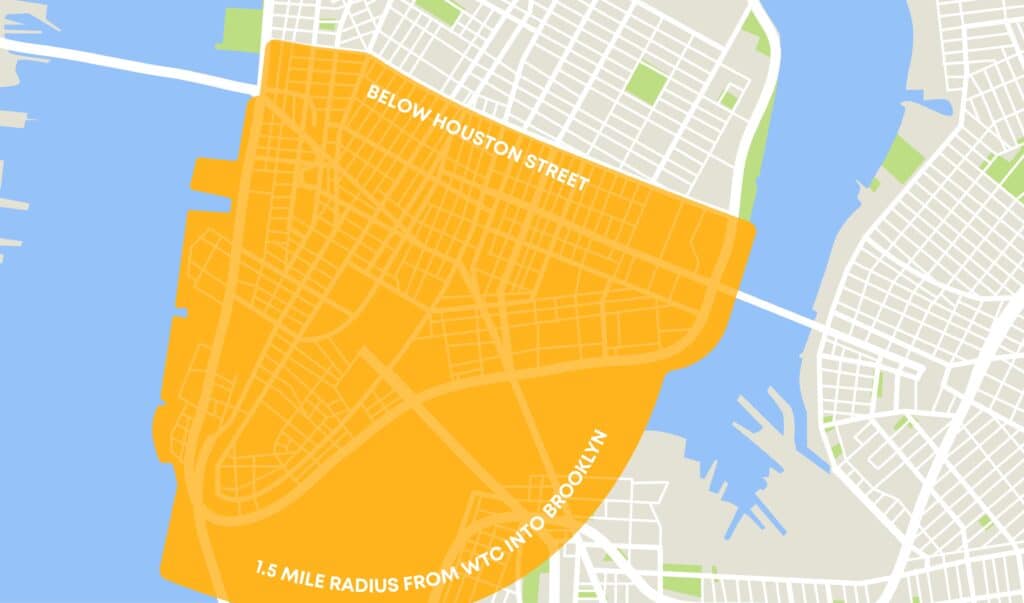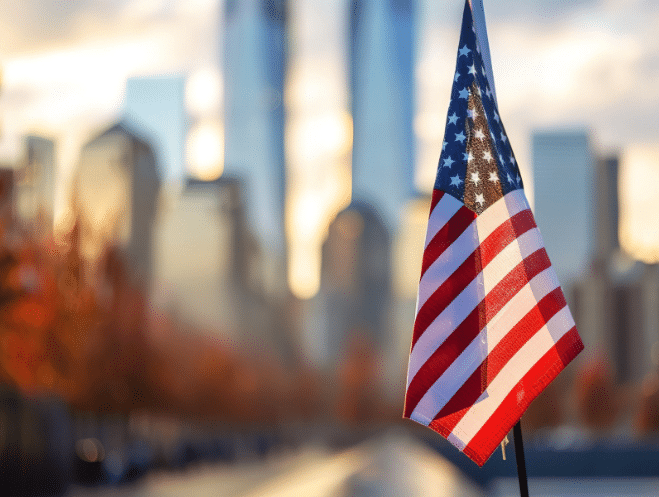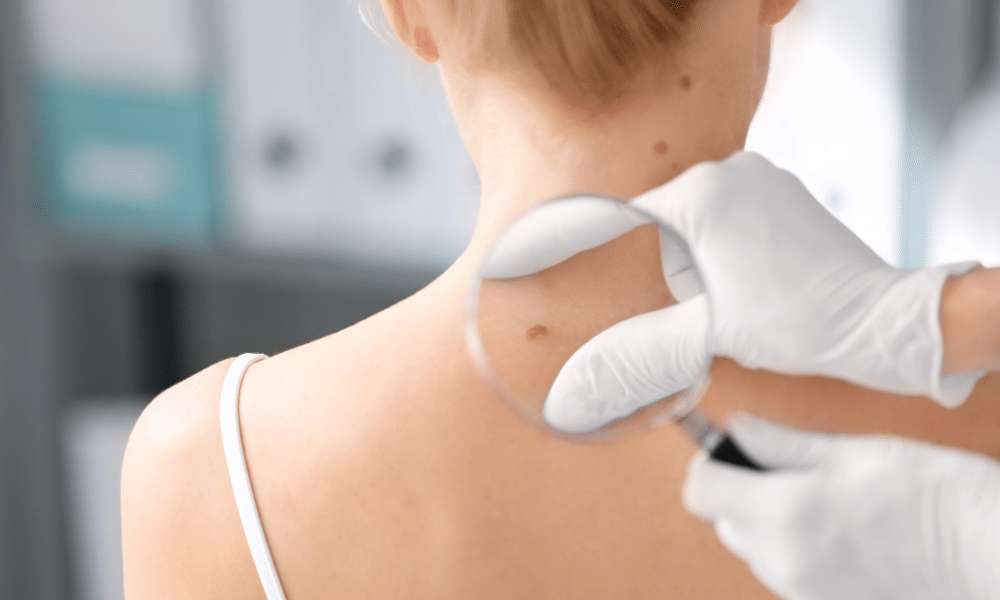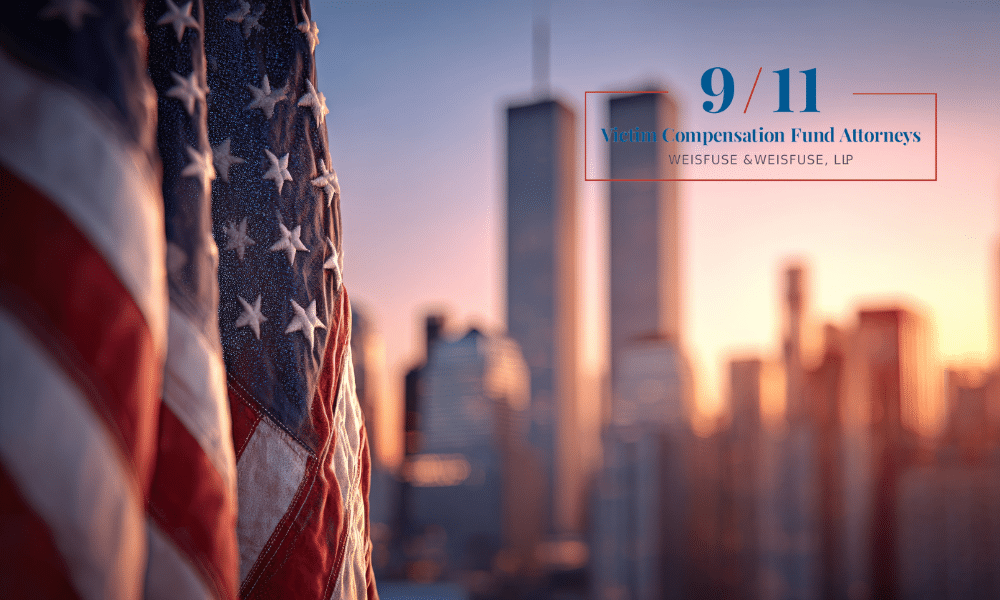
The 9/11 WTC Health Program
We are a 9/11 World Trade Center Health Program & Victim Compensation Fund law firm with extensive experience helping 9/11 victims secure the financial compensation and physical & mental health medical treatment they deserve.
Weisfuse & Weisfuse LLP has recovered 10’s of millions of dollars for clients seeking out the benefits from the WTC Health Program & Victim Compensation Fund.
If you suffer from a 9/11-related illness, we will be your advocates, providing personal attention every step of the way. See if you qualify today.
Following the devastating terrorist attacks on September 11th, 2001, countless first responders and people living, working, and studying near Ground Zero were afflicted with various debilitating and deadly illnesses. The primary cause of these illnesses was the toxic dust cloud that permeated Lower Manhattan immediately after the attacks, and for months after. That is when the World Trade Center Health Program was created to help victims of the attack.
The mixture of carcinogenic and otherwise noxious substances, including asbestos, lead, benzene, PCBs, chromium, and glass particles, was inhaled by tens-of-thousands of people in what is now referred to as the “Exposure Zone.” If your health has been affected by exposure to the toxins at Ground Zero, contact the 9/11 WTC Health Program Lawyers at Weisfuse & Weisfuse, LLC today for help with enrolling in the World Trade Center Health Program.
What is the World Trade Center Health Program (WTCHP)?
In 2010, the James Zadroga Health and Compensation Act was established to provide medical treatment and compensation to 9/11 survivors and first responders. Named for the first NYPD officer to succumb to a 9/11-related illness, the Zadroga Act is comprised of two parts—the World Trade Center Health Program, which covers related medical care, and the September 11th Victim Compensation Fund (VCF), which provides compensation for lost income, emotional pain and suffering, and other associated damages.
The World Trade Center Health Program was established by the James Zadroga 9/11 Health and Compensation Act of 2010 (the Zadroga Act) to provide medical treatment to 9/11 survivors and first responders.
How Does the WTC Health Program Work?
According to the Centers for Disease Control and Prevention, the World Trade Center Health Program has multiple Clinical Centers of Excellence (CCE) throughout the New York (NY) tri-state area. The Nationwide Provider Network (NPN) provides care to members outside of the New York City metro. New WTC Health Program members receive a welcome letter with information on how to schedule their first evaluation. Once 9/11 illness victims are enrolled in the WTC Health Program, they will visit a CCE or NPN provider for their initial health evaluation.
Who is Eligible for the World Trade Center Health Program?
The World Trade Center (WTC) Health Program provides no-cost medical monitoring and treatment to individuals who were affected by the September 11, 2001, terrorist attacks. To be eligible for the WTC Health Program, a person must fall into one of the following two categories:
9/11 Responders
These are individuals who worked or volunteered in rescue, recovery, cleanup, or related support roles at one or more of the following sites:
- Ground Zero in New York City
- The Pentagon
- The Shanksville, Pennsylvania crash site
Eligible responders must have performed qualifying activities between September 11, 2001, and July 31, 2002, and meet specific time and location requirements. This includes FDNY personnel, law enforcement, construction workers, and other support staff.
9/11 Survivors
This group includes people who:
- Lived, worked, or went to school, daycare, or adult care in the NYC Disaster Area between September 11, 2001, and July 31, 2002
- Were exposed to the dust or dust cloud on 9/11
- Were eligible for certain residential or employment-based disaster recovery grants
Additional Requirements
In addition to meeting the location and activity criteria, individuals must also be diagnosed with a medical condition certified by the WTC Health Program as related to 9/11 exposure. Certification is required for treatment coverage.
There is no enrollment deadline, and the program is authorized through 2090. The WTC Health Program is a separate benefit from the September 11th Victim Compensation Fund (VCF), which provides financial compensation.
Health side effects of 9/11

Additionally, individuals exposed to the toxic dust and debris following the September 11th attacks have experienced aerodigestive (airway and digestive) disorders, such as asthma, gastroesophageal reflux disease (GERD), and sleep apnea. These respiratory and digestive conditions have been observed in both rescue workers and residents of Lower Manhattan.
Tragically, many types of cancers have been associated with 9/11 exposure. The toxic substances present in the dust and smoke at Ground Zero have been linked to increased risks of various cancers, including lung cancer, mesothelioma, and certain types of blood cancers.
The psychological impact of the 9/11 attacks has also had lasting effects on individuals directly affected by the events. Mental and behavioral health conditions, such as post-traumatic stress disorder (PTSD), depression, anxiety disorders, and substance abuse, have been observed among survivors, witnesses, and responders.
Furthermore, musculoskeletal disorders are prevalent among individuals who engaged in the rescue, recovery, and cleanup operations following the attacks. Conditions like carpal tunnel syndrome, lower back pain, and other musculoskeletal injuries have been reported due to the physically demanding nature of the work.
These side effects of 9/11 exposure underscore the significant health challenges faced by those directly impacted by the attacks. The WTC Health Program provides crucial medical monitoring, treatment, and compensation for individuals affected by these conditions, aiming to support their well-being and improve their quality of life.
Examples of our Client’s VCF Awards
$1,892,969.00
For Pancreatic Cancer
$1,779,166
For cancer of the esophagus
$864,906.77
Lung cancer, COPD, and pulmonary fibrosis
Frequently Asked Questions
WTC Health Program Vs Victims Compensation Fund
The September 11th Victim Compensation Fund is an entirely separate program from the World Trade Center Health Program and is run by a different federal agency – the Department of Justice for the VCF and the Centers for Disease Control and Prevention (CDC) for the World Trade Center Health Program. The VCF now requires that all survivor claimants be certified by the World Trade Center Health Program, with limited exceptions.
The VCF will only inquire with the WTC Health Program about applicants’ illnesses or injuries if they file a claim for compensation. However, anyone who has suffered injuries related to the September 11th attacks should apply to both programs. The WTC Health Program will provide documentation for the associated VCF claim, and VCF will calculate compensation based on that documentation and any resulting damages.
What are 9/11 Illnesses covered under the WTC Health Program?
The list of certified conditions is extensive, but the most common include:
- Acute traumatic injuries, such as brain or eye injuries;
- Aerodigestive disorders;
- Cancers; and
- Mental health conditions, such as anxiety disorder and post-traumatic stress disorder (PTSD).
The above list is far from exhaustive. Furthermore, even certain conditions that are not currently certified may be eligible for compensation if associated with a certified condition. One of our WTC lawyers can help survivors and first responders determine eligibility and proceed with a compensation claim.
Contact Weisfuse & Weisfuse LLP Today
Weisfuse & Weisfuse, LLC, enrolls clients in the WTC Health Program and guides them throughout the certification process. The WTC Health Program also provides free medical care, annual cancer screenings, and prescription benefits for 9/11-related conditions. For a free consultation with one of our 9/11 attorneys to learn about compensation for cancer or another condition, contact us directly online or call 212-983-3000.







